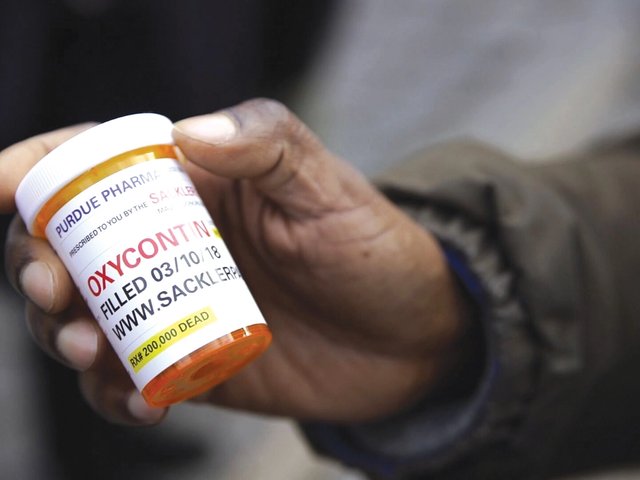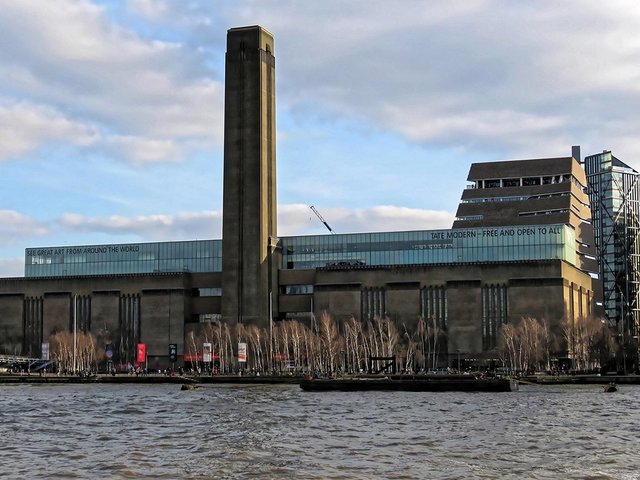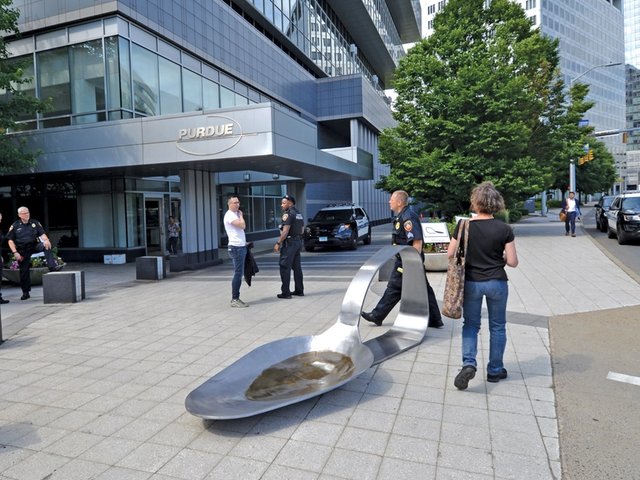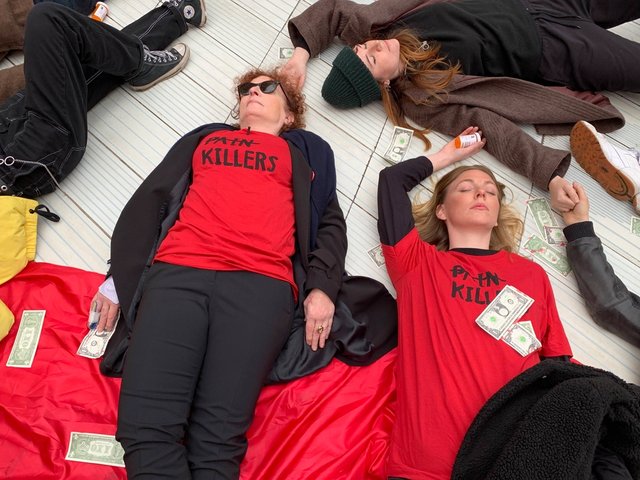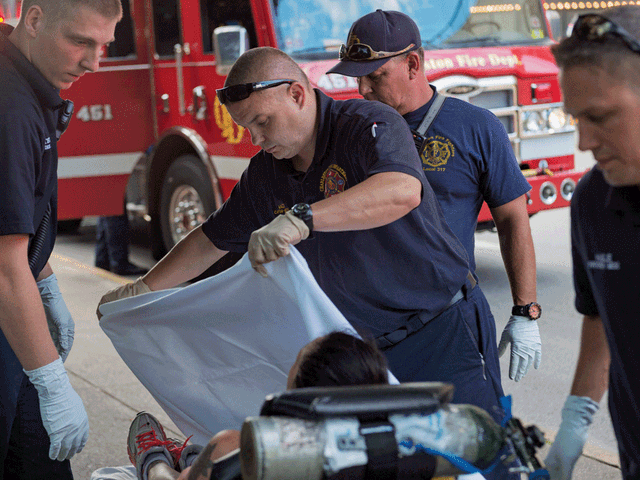Tate is to remove the Sackler name from five locations at its two London museums amid ongoing calls for institutions to distance themselves from the family which manufactured and sold the highly addictive opioid OxyContin through their firm Purdue Pharma.
The Sacklers stand accused of misleading doctors and the public about the harms the drug posed in order to maximise their profits; the $13bn family fortune comes largely from the sale of OxyContin. They deny the allegations.
An estimated 500,000 people have died from prescription opioid overdoses in the US.
Despite this, Tate said in 2019 that it would keep the Sackler name in its galleries. “The Sackler family has given generously to [us] in the past, as they have to a large number of UK arts institutions. We do not intend to remove references to this historic philanthropy.”
It has now reversed this decision. A spokesman tells The Art Newspaper that the Sackler name will be removed from five places, two at Tate Britain (central octagon and a gallery) and three at Tate Modern (escalators, lifts, and a gallery). In a statement, it said: “Following conversations with the donor, it was mutually agreed to remove references to the Sackler family during the latest round of updates to gallery signage.” When asked, the museum declined to say why it had changed its mind.
New Yorker journalist Patrick Radden Keefe led the investigation into Purdue Pharma and the Sackler family, releasing the award-winning book Empire of Pain last year
Tate’s move follows the Metropolitan Museum’s decision to remove the Sackler name from its galleries in December after a year-long review. Other institutions which have taken the same step include the Louvre in Paris in 2019 and the Serpentine Galleries in London last month. All three institutions declined to link the move to the ongoing opioid epidemic.
Sources cited by the Times, which first reported Tate’s decision, suggested that the Sacklers would not seek to recoup donations made to museums over breach of contract provided the family name was removed from institutions quietly.
The newspaper also revealed that Kettle’s Yard, a gallery in Cambridge which opens an Ai Weiwei exhibition this week, Kew Gardens, Sussex University, Imperial College London and Shakespeare’s Globe theatre will also all remove the Sackler name from their spaces.
Toxic money
In recent years, details about the Sacklers' running of Purdue Pharma have emerged through internal emails and company reports released as part of the disclosure process in ongoing legal battles. These documents paint a disturbing picture of the family’s role in the ongoing opioid crisis.
Sackler sponsorship: take it or leave it? Plus, museum visitor figures
In 2018, Massachussetts became the first US state to sue seven members of the Sackler family personally, including Theresa Sackler, a major benefactor to UK museums and a former trustee of the Victoria and Albert Museum in London. In a complaint filed by the state’s attorney general, Maura Healey, she said: “Purdue Pharma created the [opioid] epidemic and profited from it through a web of illegal deceit. First, Purdue deceived doctors and patients to get more and more people on its dangerous drugs. Second, Purdue misled them to take higher and more dangerous doses. Third, Purdue deceived them to stay on its drugs for longer and more harmful periods of time. All the while, Purdue peddled falsehoods to keep patients away from safer alternatives. Even when Purdue knew people were addicted and dying, Purdue treated patients and their doctors as ‘targets’ to sell more drugs. At the top of Purdue, a small group of executives led the deception and pocketed millions of dollars.”
Purdue Pharma filed for bankruptcy in 2019 and the Sacklers agreed to contribute $4.5bn to addiction programmes and to use their pharmaceutical firm’s assets to develop treatments for opioid abuse. In exchange, individual family members were to be shielded from legal action. However, a US judge overturned that agreement in December, so the Sacklers could still be held personally liable for the damage they are alleged to have caused in the US.
In 2019, the National Portrait Gallery became the first major museum to publicly reject a £1m gift from the Sacklers after pressure from the photographer Nan Goldin who was prescribed OxyContin for a wrist injury and then became addicted to it. Two days later, Tate, which has received over £4m from Sackler family trusts over the years, said it would also reject any further money from the family.


![In 2019, the Tate said it did not "intend to remove references to [the Sackler's] historic philanthropy”. © Jorge Percival](https://cdn.sanity.io/images/cxgd3urn/production/c139f69be19d39675ab68ce7a2bd5ee7b78d4af9-850x567.jpg?w=1200&h=800&q=85&fit=crop&auto=format)
